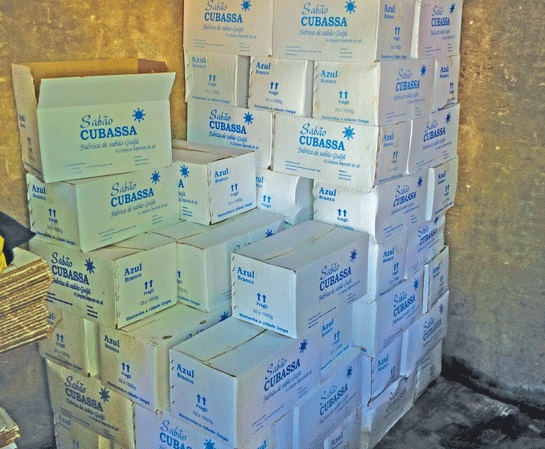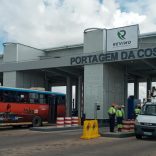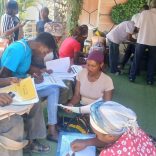Mozambique: REVIMO net profit reached 54.7 million meticais in 2024
Entrepreneur’s homemade soap conquers market – Mozambique

Domingo
A homemade soap maker in Caniçada in the Guijá district of Gaza province has conquering the national market and is selling especially well in Maputo, Gaza and Inhambane. Weekly newspaper Domingo visited his factory, which can produce up to 1,500 boxes per season.
Estevao Manhase, the owner of the Fábrica de Sabão Guijá (FASAG) factory, told Domingo that because of the growing demand for his soap, which is called Cubassa, he starting considering the possibility of widening his horizons and entering markets further away in the centre and north of the country.

To do so, he must by a soap-cutting machine. Presently, this task is done manually using wires, a large job for the workers, who must be careful not miss the measurements.
Manhase also plans to buy a truck to boost productivity. Distribution is currently done using rented transport at a cost of 20,000 meticais for the province of Inhambane and 15,000 meticais for Maputo. He also intends to build an office and organize his company’s finances by hiring of accountants to look for financing, grow production and recruit more workers.
His current factory employs only eight workers. When it first opened, it produced only twelve twenty-bar boxes of soap per week. Today, it can produce more than two hundred.
Another problem Estevão Manhase is facing is the cost of the raw material, currently bought from competing companies which acquire the material abroad. “We need to shop around in South Africa or Malaysia where we can find products at affordable prices. In some cases we have to beg suppliers to sell us certain products, and when they accept they stipulate prices at will,” he said.
Manhase explained that soap production requires copra oil, fatty acids, caustic soda, sodium carbonate and bicarbonate, among other ingredients. He tells how he set up the factory in his yard, with most of the work being done outdoors, except the cutting, which is done on his porch. Storage is in a tiny purpose-built warehouse.
In the yard there are two 100 kg drums, where the sodium carbonate is dissolved in 200 liters of water. Another essential instrument is the pan where 400 liters of copra, mafur and fatty acids are mixed over a fire in the backyard.
Manhase borrowed about 300,000 meticais from the District Development Fund for raw material and equipment to set up his factory.
By Idnórcio Muchanga












Leave a Reply
Be the First to Comment!
You must be logged in to post a comment.
You must be logged in to post a comment.